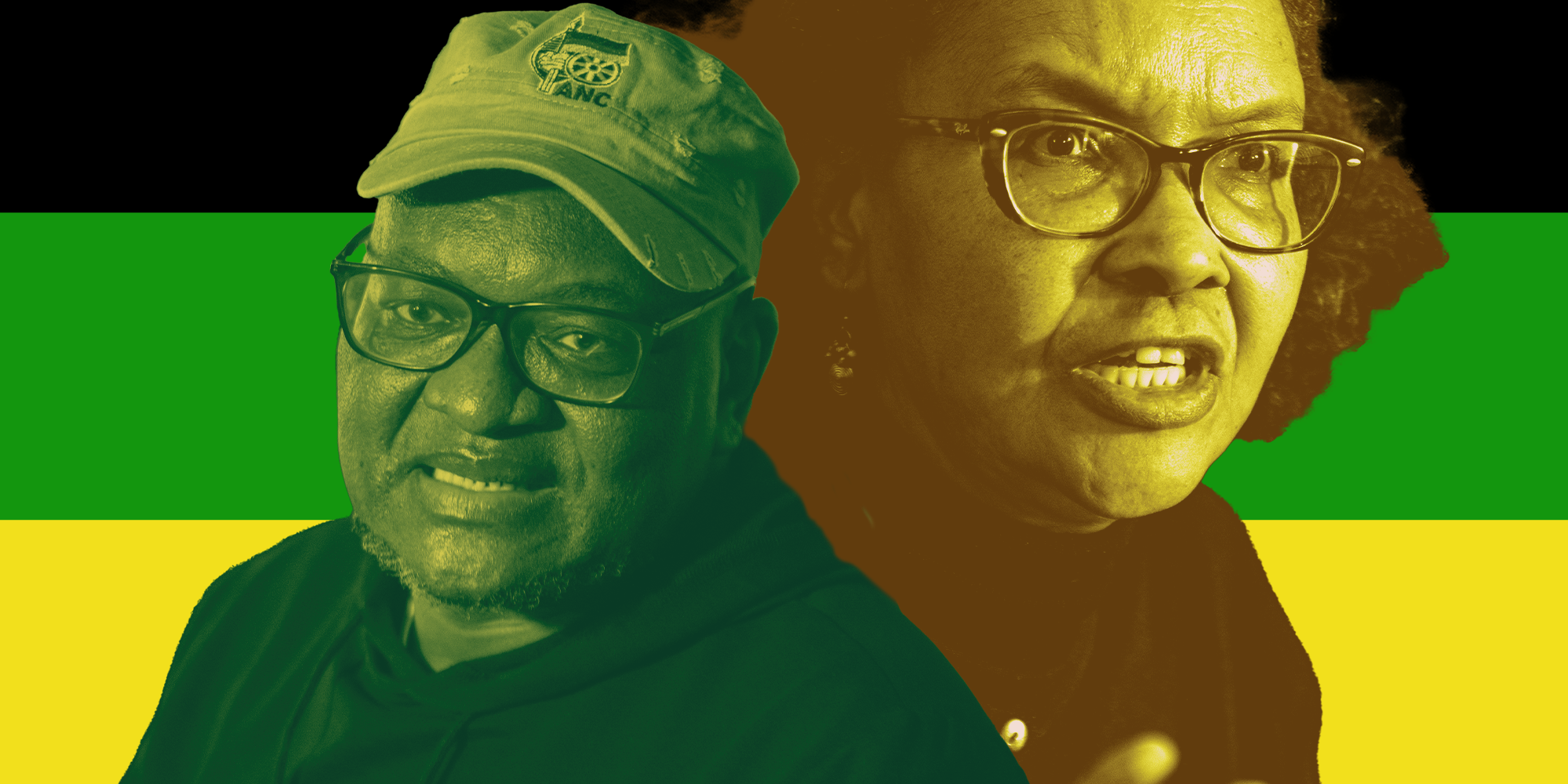ANC head of political education David Makhura has strongly emphasised the party’s need to renew itself, saying that the organisation has two options, to “adapt or die”.
Makhura was speaking over the weekend on the sidelines of the ANC National Executive Committee (NEC) meeting at the Birchwood Hotel and OR Tambo Conference Centre in Boksburg, Gauteng.
“We say one of the reasons we are where we are is that we have disappointed the force, the support base that believes in us. There have been ideological and political differences. The organisation is not in its ideal state.
“The team yesterday said that renewal is a do-or-die issue. We have to renew or we will perish. The many resolutions which were taken on renewal will now be implemented,” he said.
Speaking alongside Makhura, ANC senior member Fébé Potgieter explained that their analysis showed other factors which led to the party’s decline in the elections, including factionalism.
Makhura and Potgieter presented a report to the NEC titled “Understanding the 2024 Moment: The domestic continental and global balance of forces and the immediate tasks of the NDR”.
Makhura further spoke about political fragmentation in the form of breakaway parties, the effects which SA’s ailing economy has on citizens and a strong lobby against change and transformation.
The ANC acknowledges that the slow pace of its transformation continues to haunt the party as minority groups continue to thrive while the majority black population lives in squalour.
The party is looking to advance the rights of women, stating that they remain the most eager to vote in elections. According to the Independent Electoral Commission of SA, women accounted for 55.25% of registered voters for this year’s elections.
“We face a crisis of democratic participation if you have such low levels of registration and turnout… The only group that has been consistent are women… That has been a consistent constituency supporting our democracy. Moving forward, we need to address the question of the plight of women, some of the NEC relate to that,” said Potgieter.
The party’s analysis shows that citizens have started voting along racial lines. Potgieter particularly made reference to the coloured community as well as KwaZulu-Natal.
“The dream of a non-racial SA where people vote on the basis of policies and what it means for the country – clearly we face a challenge there. It didn’t also express itself in the elections. We have these intermittent scenes of racism [that] we cannot understand,” she said.
Read more: ANC haemorrhaged votes because people lost confidence in it, NEC to hear
ANC can regain support
Potgieter said, however, it was not too late for the ANC.
“We are a movement that is 112 years old, there were points in the 1930s where we were almost wiped out because of the problems we face now – factionalism, not responding to the liberation idea. The leadership at the time realised that they must adapt or perish. I think that the message from the electorate is powerful, particularly the segments who did not vote for the ANC,” she said.
The ANC for the first time assessed its performance in the elections during the three-day NEC. The former governing party dropped by 17 percentage points nationally to 40%, leading to the formation of the government of national unity with other parties, including the DA, IFP and PA, and failed to garner majorities in KwaZulu-Natal (KZN), Northern Cape and Gauteng.
The ANC lost its majority and negotiated for provincial governments of unity in Northern Cape and KZN while it leads a minority government in Gauteng. The party maintained its majorities in Free State, Eastern Cape, Limpopo, Mpumalanga and North West.
Potgieter said that the party’s top brass had resolved to improve governance, with a focus on local government, improving the state of the economy and strengthening the organisation internally.
Discipline and the integrity commission
The ANC is also expected to hold a special NEC where the party will look at ways to strengthen the powers of the organisation’s integrity commission, chaired by Frank Chikane.
The commission was set up in 2013 to protect the image of the ANC and to enhance its standing in society by ensuring that action is taken to deal with public officials, leaders and members who face allegations of improper conduct.
However, the committee has been criticised for being toothless since it makes only recommendations for how disciplinary matters should be handled while the final say still lies with the party’s NEC.
ANC lekgotla focuses on priority areas
Following the NEC meeting, the party’s lekgotla began on Sunday. Representatives from provinces, ministers, deputy ministers, premiers and executive mayors will attend the gathering. Its core task will be to elaborate a policy programme for the ANC in government, arising out of the six priorities of the ANC Manifesto and decisions of the NEC.
These objectives include implementing a jobs plan, building industries to achieve an inclusive economy, tackling the high cost of living, ensuring that local government delivers services, defending SA’s budding democracy and advancing freedom while building a better Africa and world.
Speaking at the opening of the lekgotla on Sunday, party President Cyril Ramaphosa said the decline of the ANC’s electoral support should be seen as a call to action.
“This is not the time to be bitter. It is the time to be better and to do better. The people of South Africa have said that we must do more and we must do better, but also that in many respects, we must change our ways,” he said.
“The task of this lekgotla is therefore to set out the work we need to do at this moment. We need to determine the work we must do in these circumstances, to build a strong, growing and inclusive economy that protects workers’ rights and offers endless opportunities and livelihoods to the people as a whole,” he said. DM





